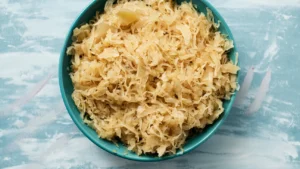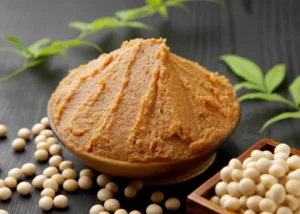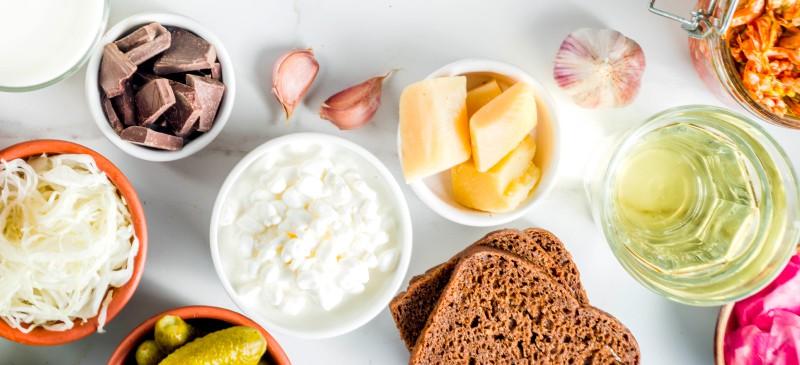In recent years, gut health has become a popular topic in wellness discussions, and for a good reason. Your gut is home to trillions of bacteria, both beneficial and harmful. Probiotics, often referred to as “good bacteria,” play a crucial role in maintaining a balanced and healthy gut, which can positively impact everything from digestion to immunity and even mood regulation. Consuming probiotic-rich foods is an excellent way to nurture these friendly bacteria and support overall well-being.
In this article, we will explore seven of the best probiotic-rich foods to help you maintain a happy and healthy gut.
1. Yogurt
Yogurt is perhaps the most well-known source of probiotics, and it’s a staple in many cultures for its digestive benefits. Made from fermented milk, yogurt is packed with live cultures such as Lactobacillus and Bifidobacterium, which are known to boost gut health.
Benefits of Yogurt:
- Improves digestion: The probiotics in yogurt help break down food and absorb nutrients efficiently, preventing bloating and indigestion.
- Strengthens immunity: Regular consumption of yogurt can boost your body’s immune defenses.
- Eases lactose intolerance: The probiotics help break down lactose, making yogurt more digestible for those with mild lactose intolerance.
When choosing yogurt, opt for brands that contain “live and active cultures” on the label and avoid those with added sugars and artificial flavors. Greek yogurt is also an excellent choice because it is higher in protein and has a thicker texture.
2. Kefir
Kefir is a fermented milk drink that originated in Eastern Europe and is quickly gaining popularity for its rich probiotic content. It contains a wide variety of probiotic strains, more so than yogurt, and has a slightly tangy taste.
Benefits of Kefir:
- Supports gut health: Kefir contains up to 60 strains of bacteria and yeast, making it one of the most diverse probiotic sources available.
- Reduces inflammation: Some studies suggest that kefir can reduce inflammation in the gut, which is often linked to digestive issues such as irritable bowel syndrome (IBS).
- Boosts bone health: Kefir is rich in calcium and vitamin K2, both of which are important for maintaining strong bones.
Kefir is versatile and can be consumed on its own or added to smoothies, making it an easy addition to your diet.
3. Sauerkraut

Sauerkraut is fermented cabbage and has been a staple in many cultures, especially in Germany. It’s made through a natural fermentation process that involves lactic acid bacteria, which are beneficial for gut health.
Benefits of Sauerkraut:
- Rich in probiotics: Sauerkraut contains beneficial bacteria such as Lactobacillus plantarum that promote gut flora balance.
- Improves digestion: The fermentation process breaks down the fiber in cabbage, making it easier to digest.
- High in fiber: Sauerkraut provides a good amount of dietary fiber, which helps keep the digestive system regular.
It’s important to choose unpasteurized sauerkraut to reap the full probiotic benefits, as pasteurization kills off the live bacteria. Homemade sauerkraut is also a great option if you’re up for trying fermentation at home.
4. Kimchi
Kimchi is a traditional Korean side dish made from fermented vegetables, primarily cabbage, radish, and spices. Like sauerkraut, kimchi is fermented through lactic acid bacteria and is known for its rich probiotic content.
Benefits of Kimchi:
- Promotes healthy digestion: Kimchi contains strains of Lactobacillus that support digestion and help prevent constipation.
- Boosts immunity: The fermentation process increases the bioavailability of vitamins like vitamin C, which strengthens immune function.
- Rich in antioxidants: Kimchi is packed with vitamins A, B, and C, as well as phytochemicals that fight oxidative stress in the body.
Due to its spicy flavor and crunchy texture, kimchi can add a flavorful boost to your meals. You can enjoy it as a side dish, in soups, or in stir-fries.
5. Miso

Miso is a traditional Japanese seasoning made by fermenting soybeans with salt and a fungus called Aspergillus oryzae. It’s commonly used to make miso soup, a popular dish served with meals in Japan.
Benefits of Miso:
- High in probiotics: Miso is teeming with live bacteria that can benefit your digestive system.
- Supports cardiovascular health: Some studies suggest that miso can help lower blood pressure and cholesterol levels.
- Rich in nutrients: Miso is packed with essential minerals like zinc, manganese, and copper, which contribute to overall health.
To preserve the probiotic benefits of miso, avoid boiling it, as high heat can kill the beneficial bacteria. Instead, add it to warm (not hot) water to make soup or use it as a seasoning in salad dressings and marinades.
6. Tempeh
Tempeh is a fermented soybean product that originated in Indonesia. Unlike tofu, tempeh is less processed and contains probiotics as a result of its fermentation process. It has a nutty flavor and a firm texture, making it a great plant-based protein source.
Benefits of Tempeh:
- Rich in probiotics: The fermentation process of tempeh fosters beneficial bacteria that support gut health.
- High in protein: Tempeh is an excellent source of plant-based protein, making it a great choice for vegetarians and vegans.
- Improves nutrient absorption: The fermentation process reduces phytic acid, an anti-nutrient that can block the absorption of minerals like iron and zinc.
Tempeh can be cooked in various ways—grilled, sautéed, or steamed—and used in salads, stir-fries, or sandwiches.
7. Kombucha
Kombucha is a fermented tea that has been enjoyed for thousands of years, particularly in China and Japan. It is made by fermenting sweetened tea with a symbiotic colony of bacteria and yeast (SCOBY), resulting in a fizzy, tangy beverage rich in probiotics.
Benefits of Kombucha:
- Improves digestion: The probiotics in kombucha help balance gut bacteria and promote smooth digestion.
- Boosts energy: Kombucha contains B vitamins, especially B12, which is known to help increase energy levels.
- Detoxifies the body: The tea polyphenols in kombucha act as antioxidants, helping to eliminate harmful toxins.
Kombucha is available in various flavors, or you can make your own at home by fermenting tea with a SCOBY. Be mindful of sugar content when purchasing store-bought kombucha, as some brands may contain added sugars.
How to Incorporate Probiotic-Rich Foods into Your Diet
Adding probiotic-rich foods to your diet is easy and beneficial for your overall health. Here are a few tips to make the most of these gut-friendly foods:
- Start slow: If you’re new to fermented foods, introduce them gradually to avoid overwhelming your digestive system.
- Variety is key: Each probiotic food offers different strains of beneficial bacteria, so try to include a variety of options in your diet.
- Combine with prebiotics: Prebiotics, which are found in foods like garlic, onions, and bananas, serve as food for probiotics and help them thrive.
- Watch for additives: When buying fermented foods, look for products with no added sugars or preservatives, as these can diminish the probiotic content.
- Homemade options: If possible, make your own fermented foods at home to ensure they contain live probiotics.
Conclusion
Maintaining a healthy gut is essential for overall well-being, and probiotics play a crucial role in this process. By incorporating probiotic-rich foods such as yogurt, kefir, sauerkraut, kimchi, miso, tempeh, and kombucha into your diet, you can promote a balanced gut microbiome, improve digestion, and support your immune system. With the right combination of these foods, you’ll be on your way to a healthier and happier gut in no time.



